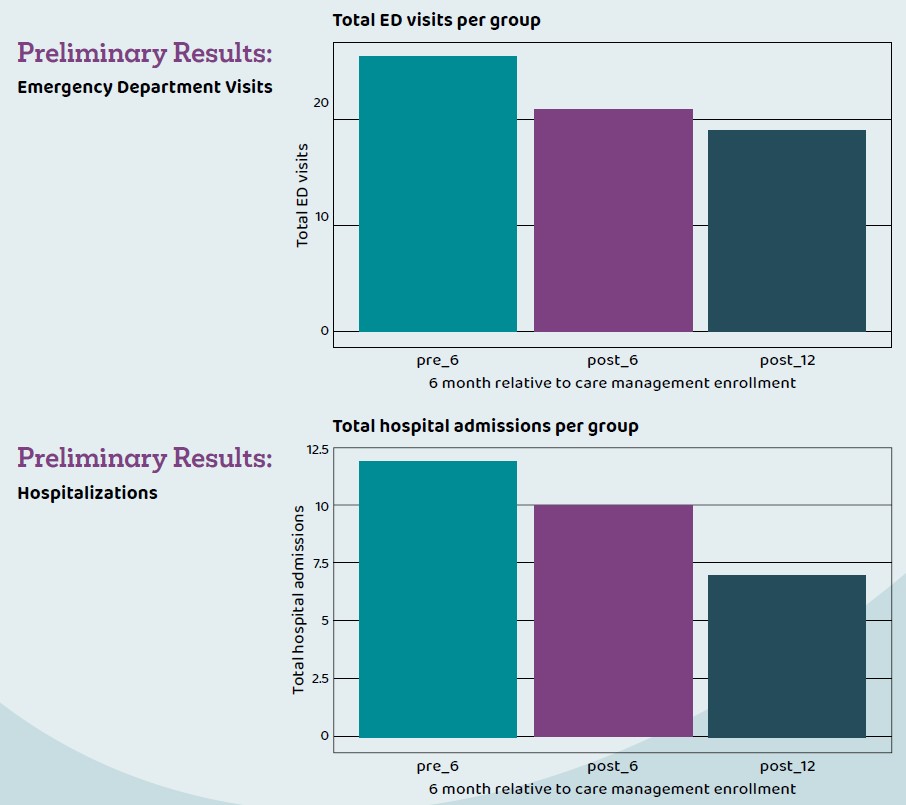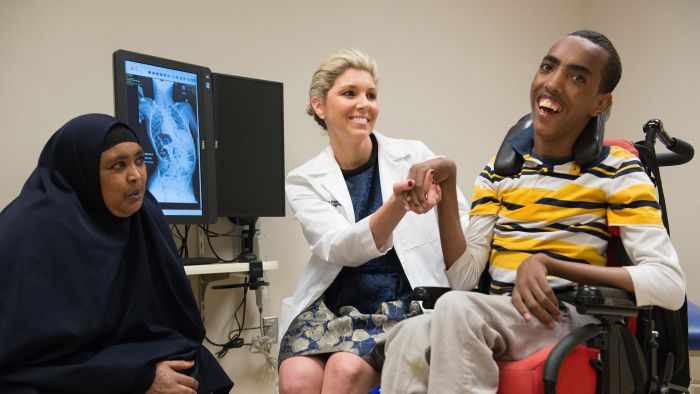The Cerebral Palsy Care Coordination (CPCC) program is Gillette Children’s first step toward a sustainable, replicable population healthcare model. After a nine-month pilot period filled with key lessons and insights, the program recently started sharing preliminary conclusions from its work with the first 147 patients.
Using expertise from literature, Cerebral Palsy Institute staff, and clinicians, Gillette compiled its Cerebral Palsy Care Guidelines. The CPCC program helps families to adhere to these guidelines, proactively identifying, addressing, and anticipating patient needs.

Gillette Children's Cerebral Palsy Care Guidelines
Key Insights
The biggest conclusion from the CPCC pilot is that care coordination for patients who have complex medical needs like cerebral palsy (CP) is highly necessary — and it makes a difference. “We need care coordination at a population level because many of our patients and families have unmet needs that affect their daily lives, and we can catch these needs earlier with proactive support and monitoring,” says Kari Kubiatowicz, director of Care Management at Gillette.
Upon enrollment, the group found 82% of patients were missing one or more CP Care Guidelines and 21 of 67 surveyed patients had one or more unmet medical needs within the past six months. The most common unmet medical needs were neuropsychology evaluation and having an active primary care provider, but other services were mentioned too, including therapies, mobility aids, dental care, and more.
One of the more promising results achieved within the pilot was demonstrating the ability to link Gillette patient data with external claims data. CPCC used these data to understand the impact that care coordination has on patients' utilization of medical services, such as emergency department visits and hospitalizations. The early findings illustrated above reveal fewer emergency department visits and hospitalizations for a small number of patients enrolled in care coordination.
Goals for the Future of Care Coordination at Gillette
The CPCC program team aims to have enrolled 375 patients by July 1, 2024. More broadly, the team hopes to implement collaboration between Gillette’s Infant and Toddler Development evaluation and Pediatric to Adult Healthcare Transition teams at Gillette. By offering end-to-end clinical service in this way, patients are getting the collaborative, proactive care they deserve.
Join Our Partners in Care Community!
Subscribe to Partners in Care Journal, a newsletter for medical professionals.
Subscribe Today Home Page
Home Page

